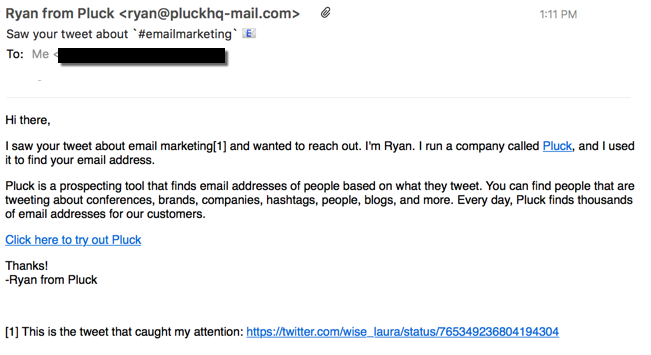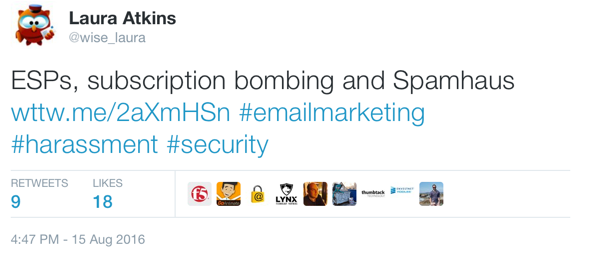Affiliate marketing overview
Most retailers have realized that sending unsolicited email is bad for their overall deliverability. Still, the idea they can send mail to people who never heard of them is seductive.
Enter affiliate email. That magical place where companies hire an agency, or a contractor, or some other third party to send email advertising their new product. Their mail and company reputation is protected because they aren’t sending the messages. Even better, affiliates assure their customers that the mail is opt-in. I’m sure some of them even believe it.
The reality is a little different from what affiliates and their customers want to believe.
Affiliate marketing is sold as opt-in
It’s been a while since I’ve taken on affiliate mailers as clients, and I routinely turn down clients who tell me ahead of time they use affiliates. Sometimes, though I’ll take on a client who is having problems with their mail and discover that they use affiliates. “Oh, we probably should have mentioned we also have this affiliate program way over there, but that shouldn’t be why our opt-in and transactional mail is failing at Gmail.”
That’s when I pull out the Google Bulk Mail Senders Guidelines and point at the very bottom of the page.
In reality, using affiliates can affect all mail from a company. I’m not sure how Google does it, but their ability to draw connections between a company’s affiliate mail and their opt-in mail is pretty good. Senders using affiliates in the hopes of prospecting without affecting their “regular” mail discover this, eventually.
Affiliate marketing is kinda opt-in
In my experience most affiliate websites are not very user friendly. Going through signups seems designed to distract and confuse visitors into clicking on agreements. This isn’t just evident in the flashy website design, but the wording on many pages seems designed to confuse.
About a decade ago, one of the MTA vendors hired me to be their in house deliverability expert for some of their major clients. One of the clients they asked me to work with was an affiliate marketing company. They were attempting to “do things right.” And, in fact, they were confirming email addresses before mailing.
However, this company was also sharing data with third parties. One of those parties started sending email to me before the actual client sent me the opt-in request. When I mentioned this to the client, they explained that the company spamming was supposed to only send direct mail, not email. They couldn’t explain why they were passing on email addresses if their partner wasn’t supposed to mail them. ?
Affiliate marketing is overwhelming
In June 2016, one of my clients revealed they were collecting addresses through affiliates. They sent me to a few different websites to sign up for mail. I did. In the 22 months since I signed up, I’ve received a lot of mail. A lot of mail.
A lot of mail.
Yes, those are actual email counts. I’m most intrigued by the addresses with only a couple emails, they appear to be truncated versions of some of the addresses I actually used to sign up. I’m not sure what kind of horrible data processing does that, but clearly there’s something truly broken out there mangling email addresses.
Not only did the sites mangle the addresses I gave them, most of the current messages aren’t even job related. Phishing, male enhancement drugs, dating scams they’re all in there. Even the one message offering job vacancies is a work from home scam.
Want to see what one of the emails looks like? I picked CVS/Drug Mall ! Expect Something Extra, Jane Doe
 Not all affiliates…
Not all affiliates…
I’m sure it’s not all affiliates. But 95% of affiliate marketers give the other 5% a bad name.

